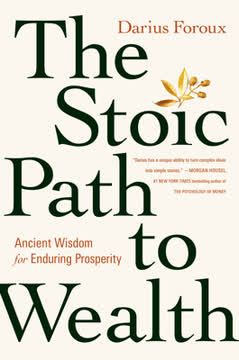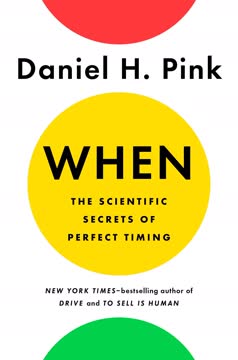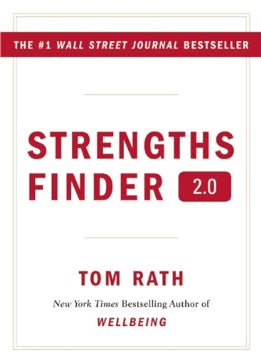Key Takeaways
1. Scientific self-help: Personalize your brain upgrades through self-experimentation
"To know whether something works for you, you've got to run a self-experiment."
Self-experimentation is key. Traditional self-help often involves blindly following an authority figure's advice, but scientific self-help empowers you to test solutions for yourself. This approach recognizes that each person's brain is unique and what works for one may not work for another.
The process involves:
- Identifying possible bottlenecks in your mental performance
- Selecting interventions to test
- Designing and conducting experiments
- Analyzing results to determine what works best for you
By taking ownership of your cognitive enhancement journey, you can discover personalized strategies that truly improve your mental performance. This method also helps you avoid wasting time and resources on interventions that may not be effective for your unique brain.
2. Neuroplasticity: Your brain can change, even in adulthood
"Brain change is a scientific reality, but it is not a given. It will be up to you to test different interventions until you find the right ones for you."
Your brain is adaptable. Contrary to old beliefs, the adult brain is not fixed but remains malleable throughout life. This concept, known as neuroplasticity, means that you can actively shape your cognitive abilities through targeted interventions and practice.
Research has shown that:
- Learning new skills can physically alter brain structure
- Consistent practice can strengthen neural connections
- Environmental changes can influence brain function
Understanding neuroplasticity empowers you to take an active role in enhancing your cognitive abilities. By engaging in deliberate practice and experimenting with various interventions, you can harness your brain's natural ability to change and improve.
3. Focus on four key mental targets: Executive function, emotional regulation, learning and memory, and creativity
"Executive functions are the mental abilities that are in charge of other abilities in your brain."
Target specific cognitive domains. To effectively enhance your mental performance, focus on four key areas:
- Executive function:
- Working memory
- Inhibition
- Mental flexibility
- Emotional regulation:
- Monitoring emotions
- Assessing emotional states
- Modifying emotional responses
- Learning and memory:
- Encoding information
- Storing knowledge
- Retrieving memories
- Creativity:
- Generating novel ideas
- Problem-solving
- Artistic expression
By understanding and targeting these specific domains, you can develop a comprehensive approach to cognitive enhancement. Each area plays a crucial role in overall mental performance and can be improved through targeted interventions and practice.
4. Optimize your lifestyle: Address health and environmental factors affecting cognition
"If you can improve conditions for yourself in any of these areas, not only will your quality of life improve, you will likely find that your overall energy and attention will, too."
Foundation matters. Before diving into advanced cognitive enhancement techniques, it's crucial to address basic lifestyle and environmental factors that significantly impact brain function:
Key areas to optimize:
- Sleep quality and quantity
- Hydration
- Air quality and breathing
- Nutrition
- Physical activity
- Safety and stress levels
- Social connections
- Sense of purpose
By addressing these foundational elements, you create an optimal environment for your brain to function at its best. Many cognitive issues can be resolved or improved by simply optimizing these basic factors, providing a solid base for more advanced neurohacking techniques.
5. Harness the power of placebo: Belief can enhance cognitive performance
"The brain appears to be surprisingly indifferent to whether pain is caused by a physical injury or an emotion."
Mind over matter. The placebo effect demonstrates the powerful influence of belief on cognitive and physical performance. By understanding and leveraging this effect, you can enhance the effectiveness of various interventions.
Key aspects of the placebo effect:
- It can work even when you know it's a placebo
- The form of the placebo (e.g., pill color, perceived cost) matters
- It can influence both subjective experiences and measurable outcomes
Incorporating placebo-like elements into your cognitive enhancement strategies, such as positive self-talk or visualization, can amplify the benefits of other interventions. This approach harnesses your brain's natural ability to create real physiological changes based on expectations and beliefs.
6. Exercise: A powerful tool for immediate and long-term cognitive benefits
"Exercise may be one of the most magical cognitive interventions out there."
Move to improve. Physical exercise is a potent and accessible tool for enhancing cognitive function, offering both immediate and long-term benefits across multiple mental domains.
Benefits of exercise on cognition:
- Improved executive function
- Enhanced memory and learning
- Better emotional regulation
- Increased creativity
Different types of exercise offer varied benefits:
- Aerobic exercise: Boosts overall brain health and neuroplasticity
- High-Intensity Interval Training (HIIT): Provides rapid cognitive improvements
- Strength training: Enhances specific cognitive functions when combined with aerobic exercise
Incorporating regular physical activity into your routine can serve as a foundation for other cognitive enhancement strategies, providing a powerful and natural way to upgrade your brain's performance.
7. Light therapy: Blue light can rival caffeine for alertness and focus
"Blue light wins again."
Harness light's power. Light, particularly blue light, can significantly impact cognitive function, rivaling the effects of caffeine for improving alertness and focus.
Key points about light therapy:
- Blue light exposure can improve reaction times and cognitive performance
- It affects the brain's production of melatonin and norepinephrine
- Timing of exposure is crucial for optimal benefits
Practical applications:
- Use blue light devices in the morning to boost alertness
- Be cautious with blue light exposure in the evening to avoid sleep disruption
- Consider light therapy as an alternative or complement to caffeine
By strategically incorporating light therapy into your daily routine, you can enhance your cognitive performance without the potential side effects associated with excessive caffeine consumption.
8. Neurofeedback: Train your brain by visualizing its activity
"What if you could know, on any given day, what aspects of your mental performance were likely to work well and which ones less so?"
See your brain in action. Neurofeedback allows you to visualize your brain activity in real-time, enabling you to learn how to control and optimize various mental states.
How neurofeedback works:
- Sensors detect brain activity
- Software translates this activity into visual or auditory feedback
- Users learn to control their brain activity through practice
Potential benefits:
- Improved attention and focus
- Enhanced emotional regulation
- Better sleep quality
- Reduced anxiety and stress
By practicing neurofeedback, you can develop greater awareness and control over your mental states, potentially leading to long-lasting improvements in cognitive function and emotional well-being.
9. Serious games: Improve cognition through targeted play
"Minecraft was just told to go play Minecraft, actually produced the most creative alien drawings."
Play with purpose. Serious games, designed to improve specific cognitive functions, offer an engaging way to enhance mental performance.
Types of cognitive games:
- Memory games (e.g., dual n-back)
- Problem-solving games
- Attention-training games
- Creativity-enhancing games
Benefits of serious games:
- Can improve working memory
- May enhance executive function
- Potentially boost creativity
- Offer a fun and engaging way to train the brain
When selecting games for cognitive enhancement, look for those with scientific backing and target specific mental abilities you wish to improve. Remember that the effectiveness of games can vary between individuals, so it's important to experiment and track your progress.
10. Electrical stimulation: Explore the potential of tDCS for mental enhancement
"tDCS is a little more problematic than some of the other inventions since when it comes down to it, you're putting electrical current into your head."
Proceed with caution. Transcranial Direct Current Stimulation (tDCS) is a promising but controversial technique for cognitive enhancement that involves applying weak electrical currents to specific areas of the brain.
Potential benefits of tDCS:
- Improved learning and memory
- Enhanced attention and focus
- Increased creativity
- Better emotional regulation
Important considerations:
- Effects can vary greatly between individuals
- Proper electrode placement is crucial
- Long-term effects are not yet fully understood
- Should be approached with caution and preferably under professional guidance
While tDCS shows promise for cognitive enhancement, it's important to weigh the potential benefits against the risks and to approach this technique with a thorough understanding of proper usage and safety precautions.
11. Nootropics: Carefully consider supplements for cognitive improvement
"Buyer beware: nonprescription vitamins, supplements, drinks, and herbs aimed at brain health and enhancement are not regulated in the US (and many other countries)."
Supplement wisely. Nootropics, or "smart drugs," are substances purported to enhance cognitive function. While some show promise, it's crucial to approach them with caution and skepticism.
Key considerations for nootropics:
- Lack of regulation in many countries
- Potential for contamination or mislabeling
- Varying effectiveness between individuals
- Possible interactions with medications or health conditions
Some nootropics with scientific backing:
- Caffeine + L-theanine: May improve focus and attention
- Bacopa monnieri: Potential benefits for memory
- Rhodiola rosea: May help combat fatigue and stress
When considering nootropics, prioritize those with strong scientific evidence, consult with a healthcare professional, and carefully monitor your response to any new supplement.
12. Future of cognitive enhancement: Emerging technologies and ethical considerations
"Just because you can try something doesn't mean you should."
Navigate the future wisely. As cognitive enhancement technologies advance, it's crucial to consider both their potential benefits and ethical implications.
Emerging technologies:
- Brain-computer interfaces
- Genetic engineering for cognitive traits
- Advanced neurofeedback systems
- Personalized AI-assisted learning
Ethical considerations:
- Fairness and access to enhancement technologies
- Potential for coercion or societal pressure to enhance
- Long-term effects on individual and societal well-being
- Privacy concerns related to brain data
As these technologies develop, it's important to stay informed, critically evaluate their potential impacts, and engage in discussions about their ethical use. The future of cognitive enhancement offers exciting possibilities but also requires careful consideration of its broader implications for individuals and society.
Last updated:
Review Summary
Smarter Tomorrow received mostly positive reviews, with readers praising its accessibility, practical advice, and scientific approach to neurohacking. Many found the author's writing style engaging and appreciated the balance of personal anecdotes and research-backed information. Reviewers highlighted the book's focus on self-experimentation and personalized cognitive enhancement. Some critics noted concerns about statistical interpretations and the relevance of certain chapters. Overall, readers found the book informative, motivating, and useful for improving cognitive abilities.
Similar Books










Download PDF
Download EPUB
.epub digital book format is ideal for reading ebooks on phones, tablets, and e-readers.




